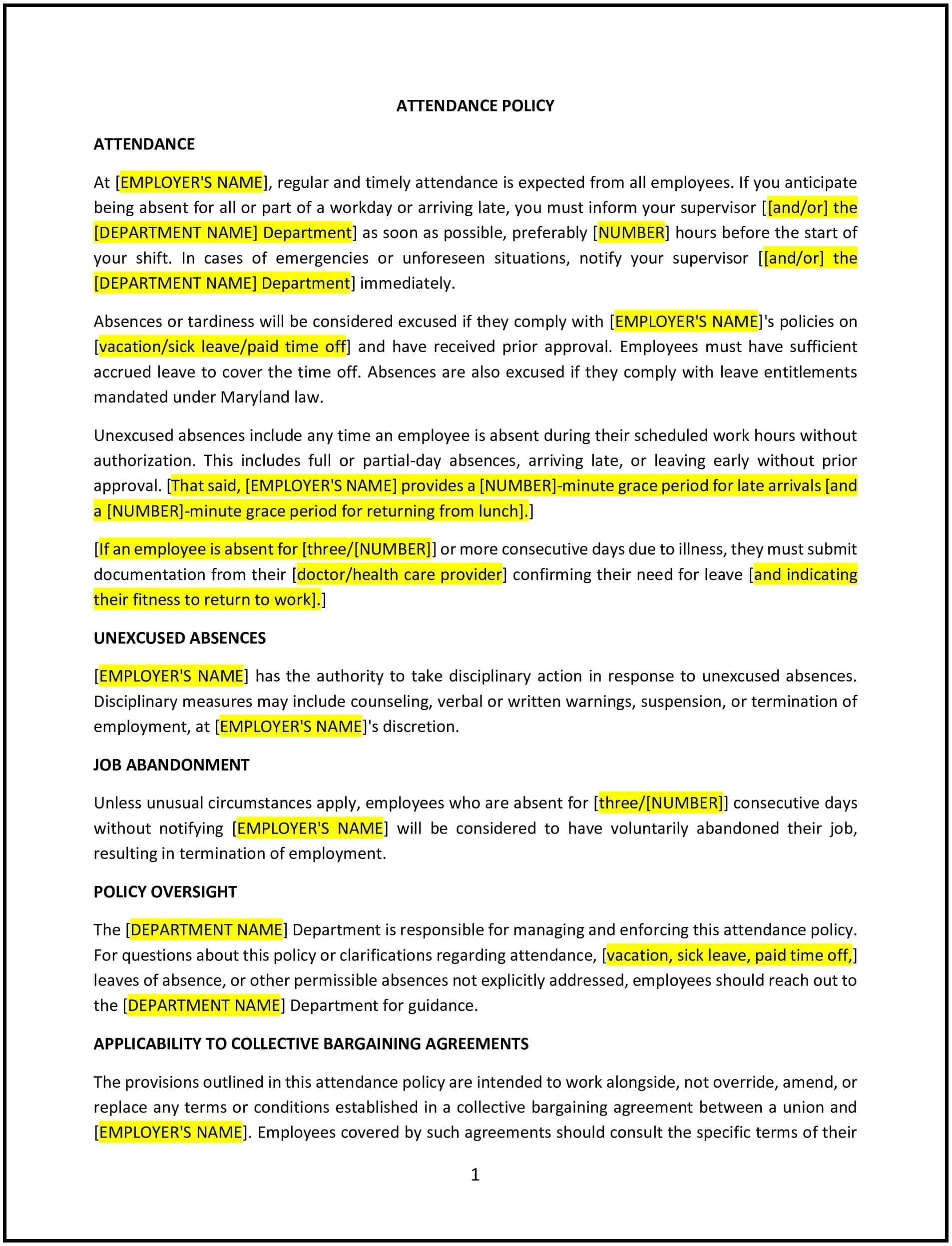Got contracts to review? While you're here for policies, let Cobrief make contract review effortless—start your free review now.

Customize this template for free
Attendance policy (Maryland)
This attendance policy is designed to help Maryland businesses set clear expectations for employee attendance and punctuality. It provides guidelines to address absences, tardiness, and time-off requests while considering Maryland’s unique employment laws, such as the Maryland Healthy Working Families Act.
By implementing this policy, Maryland businesses can promote accountability, minimize workplace disruptions, and ensure compliance with state-specific leave requirements.
How to use this attendance policy (Maryland)
- Define attendance expectations: Clearly outline expectations for regular attendance, punctuality, and reporting procedures for absences or lateness.
- Address absences: Specify acceptable reasons for absences, such as illness or emergencies, and the documentation required for extended leaves.
- Outline time-off procedures: Provide guidance on how employees should request time off, including notice periods and approval processes.
- Include Maryland-specific leave: Highlight compliance with the Maryland Healthy Working Families Act, such as the accrual and use of paid sick leave for eligible employees.
- Manage tardiness: Explain the process for addressing repeated tardiness and its potential impact on performance evaluations.
- Establish disciplinary measures: Detail the consequences for excessive absenteeism or failure to follow reporting procedures.
- Promote flexibility: Include provisions for accommodating unexpected circumstances, such as inclement weather or personal emergencies.
Benefits of using this attendance policy (Maryland)
Implementing this policy offers Maryland businesses the following benefits:
- Promotes consistency: Ensures employees understand expectations and reporting procedures.
- Reduces disruptions: Helps minimize workplace inefficiencies caused by unplanned absences or lateness.
- Aligns with state laws: Ensures compliance with Maryland-specific regulations, such as mandatory sick leave requirements.
- Enhances workplace morale: Creates a fair and transparent process for managing attendance-related concerns.
- Encourages accountability: Reinforces the importance of regular attendance for maintaining productivity.
Tips for using this attendance policy (Maryland)
- Communicate expectations: Share the policy during onboarding and include it in employee handbooks.
- Train managers: Educate supervisors on enforcing attendance policies fairly and consistently.
- Monitor compliance: Regularly review attendance records to identify patterns or issues.
- Stay updated: Ensure the policy reflects changes to Maryland’s employment laws, such as updates to paid sick leave requirements.
- Address challenges early: Proactively manage attendance issues to prevent disruptions and maintain a positive work environment.